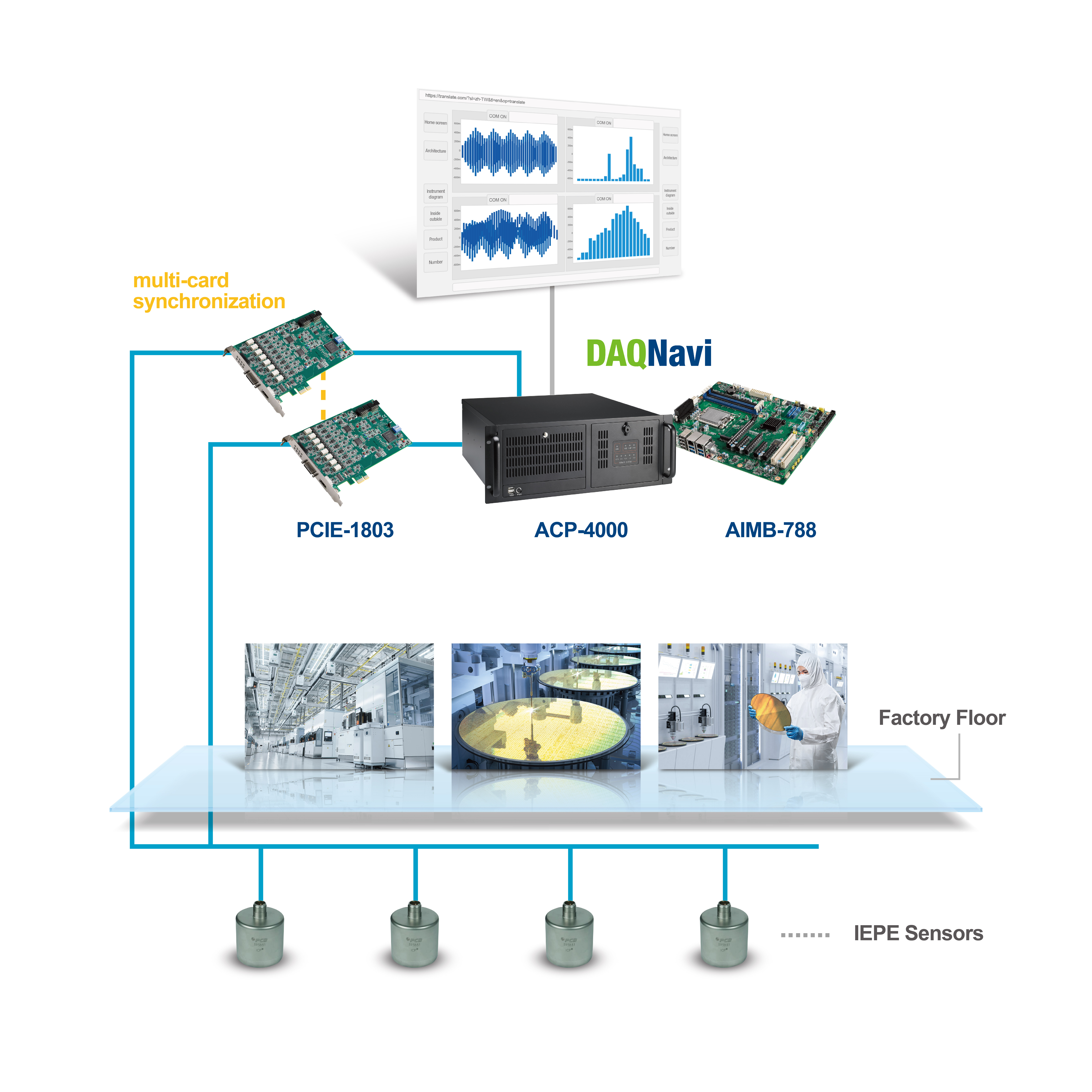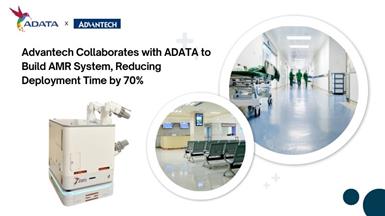Micro-Vibration Measurement System Ensures Semiconductor Fab Safety During Earthquakes
23/04/2024
.jpg)
Background
The semiconductor manufacturing process is extremely sensitive to vibrations, whether they originate internally from sources like foot traffic, fans, and pumps, or externally from factors such as nearby traffic, construction activities, or seismic events like earthquakes. Even minor vibrations can significantly disrupt production yield due to the precision required in manufacturing.
Given Taiwan's susceptibility to earthquakes, micro-vibration measurement systems are essential for local semiconductor manufacturers. These systems help safeguard equipment, reduce operational risks, and ensure the safety of personnel. By leveraging earthquake waves, which include faster P-waves and slower S-waves, these systems can anticipate the magnitude of an earthquake. Upon detecting a P-wave, the system can forecast the impending impact of the S-wave, enabling equipment to take preventive measures 5 to 30 seconds before the more destructive wave arrives. This proactive approach helps minimize earthquake-related injuries and damage.
Project Introduction
A renowned Taiwanese semiconductor company was constructing a new fabrication plant and seeking a micro-vibration measurement system. The aims were to protect existing wafer fabs from environmental micro-vibrations that might reduce yield, assist in future structural enhancements, protect equipment, and provide early earthquake warnings. The system will help in making quick decisions about shutting down crucial equipment before an earthquake, ensuring a quick resumption of operations post-disaster, and safeguarding people, production lines, and product quality.
Additionally, the manufacturer is transitioning to Advantech's more efficient and reliable vibration detection products for a new plant, driven by the need to overcome challenges with their previous systems, including delivery delays, quality issues, and unsatisfactory after-service. This strategic change is expected to strengthen the plant's operational efficiency and reliability.
For this project, Advantech has partnered with Prowave, a seasoned vibration measurement and testing system integrator with a wealth of experience in handling vibration-related challenges, especially in the semiconductor industry.
System Requirement
Micro-vibrations are defined as vibrations with frequencies ranging from 2 to 100 Hz and amplitudes under 50 μm/s, are challenging to detect with standard vibration measurement tools. Therefore, our client needs a high-end micro-vibration measurement system capable of identifying these subtle vibrations, which are vital for informed decision-making.
Integrated Electronics Piezo-Electric (IEPE) Sensors will be placed between building floors to detect vibrations in the floors and environment. The Data Acquisition (DAQ) cards, essential for measuring a wide range of vibrational variances, must possess a broad dynamic signal measurement range to ensure accurate data readings and prevent false alerts. Moreover, given the extensive deployment across the building, synchronization among these DAQ cards is imperative to facilitate simultaneous data acquisition from multiple sources in the field.
Project Implementation
- PCIE-1803: 8-ch, 24-bit, 128 kS/s Dynamic Signal Acquisition PCI Express Card
- ACP-4000:Quiet 4U Rackmount Chassis with Visual& Audible Alarm Notification
- AIMB-788: Industrial ATX Motherboards with Intel® Core™ processors (14th/13th/12th Gen)
- DAQNavi: DAQ software development kit
System Description
The system operates around the clock, 24/7, monitoring micro-vibration levels on each floor to establish patterns and long-term trends for both background vibrations and machine operation. Should vibrations surpass the VC (Vibration Criterion) curve levels or a specified Gal value, the system promptly issues an alert. Additionally, detailed reports will be generated within five minutes.
This system utilizes PCB IEPE sensors to measure micro-vibration signals. Even with high sampling rates, it maintains an exceptionally low noise ratio of 50 μVrms. Moreover, the system can automatically generate VC-Curve reports, providing immediate on-site insights into vibration conditions at specific points.
The PCIE-1803 DAQ card, chosen for this project, is an 8-channel, 24-bit, 128 kS/s dynamic signal acquisition PCI Express card. It encompasses three major features essential to the system's functionality:
- IEPE Sensor Support: The PCIE-1803 offers a wide dynamic measurement range of up to 102dB, which can fully acquire the data from IEPE. This range makes it capable of detecting both very subtle and noticeably larger vibrations.
- The PCIE-1803 not only offers simultaneous channel sampling but also enables multi-card synchronization, ensuring that all channels in the system can sample simultaneously. This ability is crucial for extensive monitoring over large areas, handling simultaneous data from up to 64 sensing nodes.
- Low Power Consumption: With a full loading power consumption of just 4.8W, the PCIE-1803 effectively reduces the risk of overheating, enhancing the system's reliability and longevity.
Advantech offers diverse platform options for customizing to specific customer needs. For this project, an ACP-4000 rackmount chassis and AIMB-788 Intel® Core™ processor-based mainboard were used. The ACP-4000 series was chosen for its LED indicators and alarm notifications, ensuring prompt fault detection and response. Its low-noise, PWM-controlled fans minimize vibrations, preserving data integrity. The AIMB-788 with a 12th Gen Intel® Core™ i5-12500 processor provides high-performance multitasking and flexibility with 5 x PCIe expansion slots. It also supports secure system management with Microsoft Windows 10.
The client utilizes LabVIEW for software development, integrating Advantech's DAQNavi SDK with PCIE-1803 into the LabVIEW VI development environment. The DAQNavi SDK streamlines configuration and demonstration, expediting initial development and validation.
System Diagram

Conclusion
Advantech's PCIE-1803 DAQ card offers high dynamic signal acquisition and multi-card synchronization, crucial for capturing micro-vibration data effectively. DAQNavi implementation has significantly reduced development time, advancing the project.
The PCIE-1803 is versatile and applicable beyond the semiconductor industry, meeting advanced measurement needs in heavy industries like petrochemicals and steel. It's ideal for monitoring large-scale equipment integrity, such as pipelines or steel casting equipment.
Advantech Sound and Vibration Measurement (IEPE-specified) Solutions

Advantech Industrial Measurement and Analysis Solutions




-25/AIMB-788_01----20220509134056.jpg)
/ACP-4000_G20120704140045.gif)
